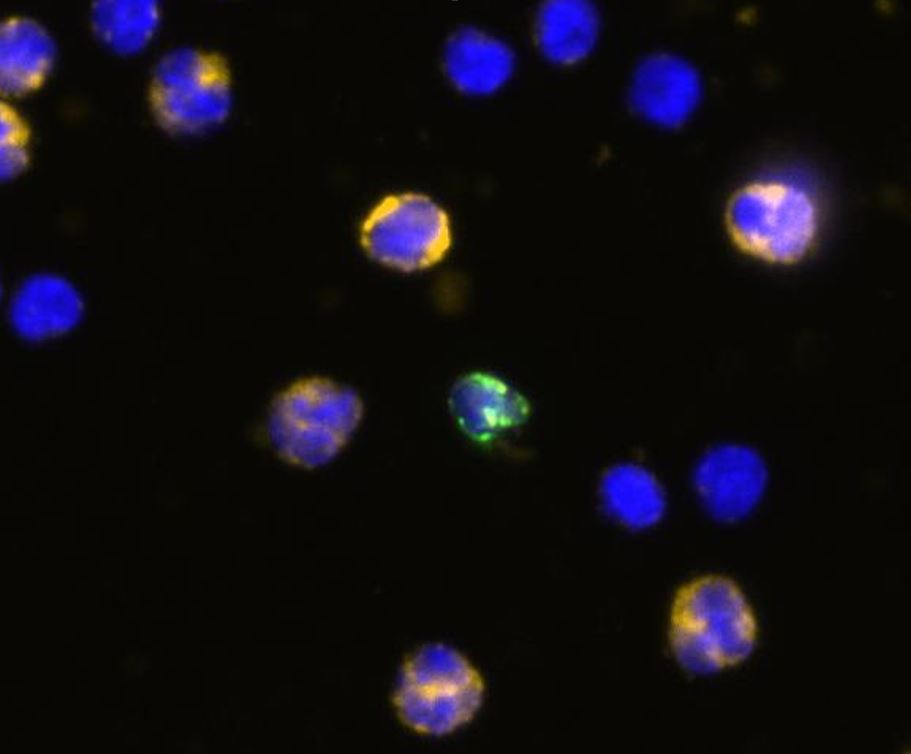Image of the Month: Human airway organoids infected with SARS-CoV-2

Cells in the human airway are susceptible to infection with SARS-CoV-2, the virus that causes COVID-19.
At Baylor College of Medicine, Dr. Pedro Piedra’s is one of the labs studying how the virus interacts with human cells. They hope to gain a better understanding of how the disease happens and that this knowledge would help improve ways to manage and treat the condition.
To study virus-tissue interactions, the Piedra lab works with human airway organoid cultures. Organoids are a novel 3D cellular model that recapitulates many aspect of cell biology, both in health and disease. They consist of organ-specific cell types, in this case derived from tissue stem cells, that grow in lab cultures, self-organizing into structures with architectural and functional characteristics of the tissue of interest. The image shows organoids derived from human nose epithelium, a tissue susceptible to SARS-CoV-2 infection.

Dr. Pedro A. Piedra, professor of molecular virology and microbiology, pediatrics, and pharmacology and chemical biology at Baylor College of Medicine. He also is the director of Baylor’s Clinical Laboratory Improvement Amendments (CLIA), FDA-Certified Respiratory Virus Diagnostic Laboratory.

Dr. Anubama Rajan, postdoctoral associate of molecular virology and microbiology in the Piedra lab.
Learn more about Dr. Piedra and the research conducted at his lab:
Hispanic Heritage Spotlight: Interview with Dr. Pedro A. Piedra
Antibody response and ‘original antigenic sin’ in RSV influence vaccine development



